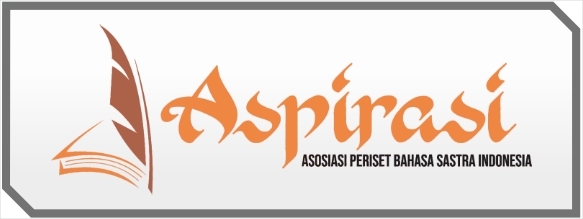Refleksi Diri Dalam Meningkatkan Kompetensi Akuntansi Melalui Experiential Learning
DOI:
https://doi.org/10.59581/jmpb-widyakarya.v2i1.2604Keywords:
self-reflection, experiential learning, internship, accounting competencyAbstract
This study aims to analyse students' improvement on accounting competence through experiential learning. This research uses self-study research method, which is research centered on personal experience and involves deep personal reflection. The results showed that students' experience in internships can encourage students to enrich their understanding of accounting learning and can develop ideal accounting concepts for them based on their internship experience with an experiential learning approach. Thus, an experiential learning approach through an internship program can improve students' accounting competencies.
References
Ahmad, B., Dangi, M. R. M., Rahman, N. H. A., Noruddin@Nordin, N. A. A., & Azero, M. A. (2018). Does Accounting Internship Affect Students’ Knowledge, Soft Skills and Personal Quality? Advanced Science Letters, 24(4), 2252–2256. https://doi.org/10.1166/asl.2018.10928
Albu, N., Calu, D., & Guse, G. (2016). The role of accounting internships in preparing students’ transition from school to active life. Accounting & Management Information, 15(1).
Aji, Gregorius Punto. (2022). Students’ Reflection on the Experience in Online School Internship Program Based On Experiential Learning. International Journal of Indonesian Education and Teaching, 6(2), 204-225. https://doi.org/10.24071/ijiet.v6i2.4820
Azizah, Nur. Santoso, Sigit dan Sumaryati, Sri. (2019). Pengaruh Persepsi Magang Dunia Usaha/Dunia Industri dan Pengalaman Organisasi terhadap Kesiapan Kerja Mahasiswa. Jurnal Tata Arta, 5(1), 95-106.
Bryan, T G. (2021). Incorporating Experential Learning Into The Accounting Curriculum: Best Practices And Lessons Learned from a Recently Implemented Curriculum. Global Journal of Accounting and Finance, 5(2), 75-86. https://mds.marshall.edu/cgi/viewcontent.cgi?article=1014&context=facstaff_submissions
Fauzia, Tasniem. Afni, Zalida. Santi, Elfitri. (2021). Konten Kurikulum Akuntansi Perguruan Tinggi dan Kesesuainnya Dengan Standar Kompetensi Lulusan. Jurnal Akuntansi dan Manajemen, 16(2), 168-190
Gittings, L., Taplin, R., & Kerr, R. (2020). Experiential learning activities in university accounting education: A systematic literature review. Journal of Accounting Education, 52, 100680.
Hamer, L O. (2000). The Additive Effects of Semi Structured Classroom Activities on Student Learning: An Application of Classroom-Based Experiential Learning Techniques. Journal of Marketing Education, 22(1), 25-34 .https://doi.org/10.1177/0273475300221004
Hamilton, M. L., Pithouse-Morgan, K., & Samaras, A. P. (2020). Self-study research methodologies for teacher educators. Routledge.
Kolb, David A. (1999). Learning Style Inventory. Version 3. Boston: Hay/McBer
Kolb, David A. (1984). Experiential Learning: Experience as The Source of Learning and Development. Englewood Cliffs: Prentice Hall
Kusumawati, A., Arif, H., Madein, A., Natsir, A.I.P. (2023). The Role of Experiential Learning in Stimulating Active Learning: Study in Accounting Education. Jurnal Pendidikan Akuntansi Indonesia, 21(1), 41-53
Leal-Rodriguez, A L & Albort-Morant, G. (2019). Promoting innovative experiential learning practices to improve academic performance: Empirical evidence from a Spanish Business School. Journal of Innovation & Knowledge, 4(2), 97-103. https://doi.org/10.1016/j.jik.2017.12.001
Mulyasa, E. (2010). Kurikulum Berbasis Kompetensi (Konsep, Karakteristik, dan Implementasi). Bandung: PT. Remaja Rosdakarya.
Mutiara, Heni. Rochmawati. (2021). Pengaruh Kompetensi Akuntansi, Lingkungan Teman Sebaya, dan Perencanaan Karir terhadap Minat Melanjutkan Pendidikan ke Perguruan Tinggi dengan Academic Self-Efficacy sebagai Variabel Mediasi. Jurnal Pendidikan dan Ilmu Pengetahuan, 21(2), 173-190.
Turner, M., & Baskerville, R. (2013). The Experience of Deep Learning by Accounting Students. Accounting Education, 22(6), 582–604. https://doi.org/10.1080/09639284.2013.847323
Wibowo. (2007). Manajemen Kinerja. Edisi Ketiga. Jakarta: PT.Raja Grafindo Prasada.
Downloads
Published
How to Cite
Issue
Section
License
Copyright (c) 2024 Febyoni Naqi Azizah, Luthfiana A’yunin Nisaa

This work is licensed under a Creative Commons Attribution-ShareAlike 4.0 International License.














